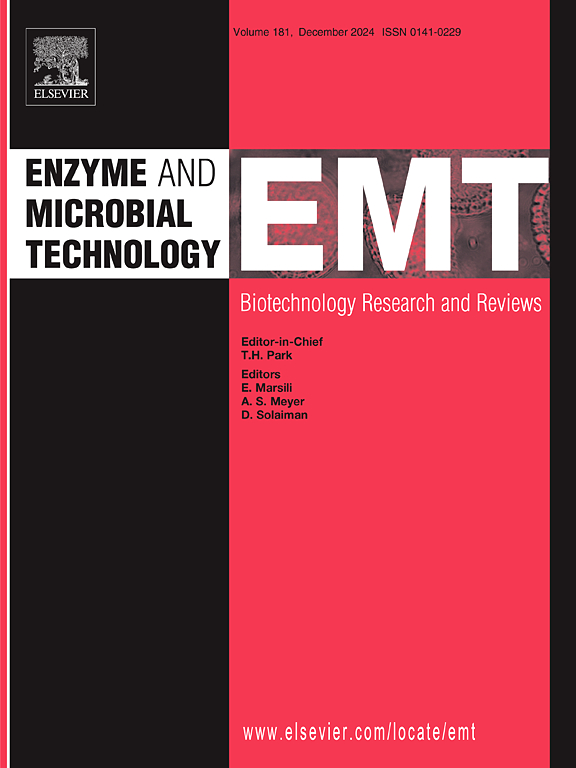Cell-free regeneration of ATP based on polyphosphate kinase 2 facilitates cytidine 5'-monophosphate production
Abstract
Cytidine 5'-monophosphate (5'-CMP), a key intermediate for the production of nucleotide derivatives, has been extensively used in food, agriculture, and medicine industries. Compared to RNA degradation and chemical synthesis, the biosynthesis of 5'-CMP has attracted wide attention due to its relatively low cost and eco-friendliness. In this study, we developed a cell-free regeneration of ATP based on polyphosphate kinase 2 (PPK2) to manufacture 5'-CMP from cytidine (CR). McPPK2 from Meiothermus cerbereus exhibited high specific activity (128.5?U/mg) and was used to accomplish ATP regeneration. McPPK2 and LhUCK (a uridine-cytidine kinase from Lactobacillus helveticus) were combined to convert CR to 5'-CMP. Further, the degradation of CR was inhibited by knocking out cdd from the Escherichia coli genome to enhance 5'-CMP production. Finally, the cell-free system based on ATP regeneration maximized the titer of 5'-CMP up to 143.5?mM. The wider applicability of this cell-free system was demonstrated in the synthesis of deoxycytidine 5'-monophosphate (5'-dCMP) from deoxycytidine (dCR) by incorporating McPPK2 and BsdCK (a deoxycytidine kinase from Bacillus subtilis). This study suggests that the cell-free regeneration of ATP based on PPK2 has the advantage of great flexibility for producing 5'-(d)CMP and other (deoxy)nucleotides.





